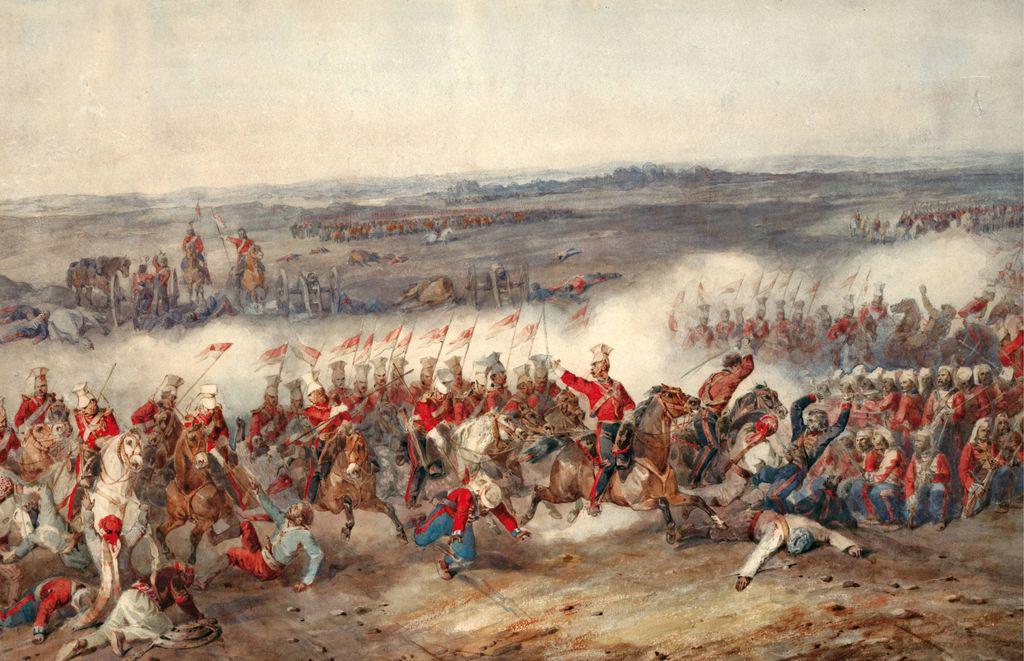ALIWAL

“UNDER THE UNIMAGINATIVE COMMAND OF SIR HUGH GOUGH THEY HAD ATTEMPTED TO BULLDOZE THE SIKHS WITH FRONTAL ASSAULTS, BUT HAD PAID DEARLY”
Sometime between 8 and 15 December 1845, Sikh forces crossed the Sutlej River in the Punjab, in northwest India. The exact date of the crossing is a subject of debate, but the result is not – war had broken out between the Sikh Empire and the British.
Tensions had been building in the region for years. The British East India Company, which had already taken control of the bulk of the country, did not have plans to attack the Sikhs, viewing them as a valuable buffer between British possessions and the states to the north. Despite this, the Sikhs were perceived as a potential threat, not least because their armed forces had expanded dramatically under Maharajah Ranjit Singh. After first uniting the various Sikh states, starting in 1801, he completely rebuilt the Sikh Army, placing a disciplined infantry force at its heart and relegating the cavalry to a supporting role. A massive artillery arm was also steadily built up and by the time of Ranjit Singh’s death, in 1839, the Sikh Army was arguably the strongest in India and the strongest the British East India Company had ever faced.
After the death of the great leader, the Sikh state began to suffer as rival factions competed for power. This, together with a rapid escalation in the size of the army (from around 38,000 at the time of Ranjit Singh’s death to 70,000 by 1845), caused the British to become nervous.
Adding to the volatile nature of the situation,
You’re reading a preview, subscribe to read more.
Start your free 30 days





